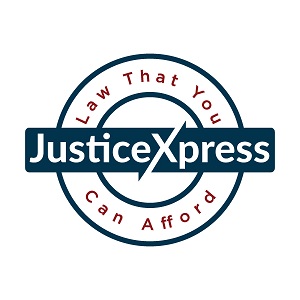You are here: Information Center >> Motor Vehicles >> Streets and HighwaysStreets and HighwaysDrivers today should make it a habit to drive defensively and obey the rules of the road for their own safety and the safety of others traveling. The rules of the road are the customs or regular patterns of driving that are accepted as you travel on roads and highways. These commonsense patterns of driving have been enacted into laws in most states. What is a vehicle right of way?All drivers have a duty to avoid accidents or collisions. Thus, a law requiring a driver to give the right of way at an intersection means that drivers at an intersection must be cautious before entering and yield the right of way to other vehicles to avoid an accident. Just because it is your "turn" at the intersection does not mean you can proceed indiscriminately. TIP: At a highway entrance, the driver on the ramp entering into traffic must yield the right of way to oncoming vehicles. What is a pedestrian right of way?It is typical to assume a pedestrian will yield to your vehicle. However, the driver can be cited for failing to avoid a collision even where the pedestrian is at fault. In cities, pedestrians have the right of way depending on traffic signals. Is it reasonable to assume that a pedestrian will yield to oncoming traffic?Yes. A motorist can reasonably assume that a person will wait until traffic has passed before she enters the roadway. Due care does not require you to stop in the middle of the road to let a person cross where there is no crosswalk or crossing. (However, if a person is already crossing in the middle of the street, due care requires you to yield.) A collision with a pedestrian, in and of itself, does not prove you failed to exercise due care. SIDEBAR: Drivers have a greater duty of care to young children who are on the roadway without parental supervision. The age of the child is not the critical factor in determining whether the driver yielded the proper right of way. The courts look at the child's intelligence, experience or inexperience, and ability to understand and appreciate danger. When do I have to sound my horn?Some laws require drivers to sound their horns in special circumstances. For instance, the driver of a vehicle entering a highway from a private drive must honk the horn to warn oncoming traffic under some state laws. TIP: While honking your horn may warn bicyclists or pedestrians as you come up behind them, you should balance the importance of the warning against the fright factor if the horn is startling. You do not want to cause someone to fall or run into your path. When do I have to signal?Drivers are required to share the road and cooperate with other drivers. Thus, timely turn signals, either by signal light or hand, are necessary to maintain safe travel. SIDEBAR: There is not a definitive distance required from oncoming traffic when a vehicle is making a left-hand turn into the road. The road conditions and speed of the oncoming vehicles determine a reasonable distance. For example, 100 yards may be too little if oncoming cars are speeding and you have a slow vehicle with a long trailer attached. I was rear-ended. Am I at fault?Vehicles traveling one behind the other must use caution in speeding up or slowing down. Generally, however, the lead vehicle is not at fault in a rear-end collision. It is presumed that the driver of the following vehicle was too close and acting without caution. I was backing out of a parking space and was hit. Whose fault is it?A driver backing his vehicle into traffic has the duty to yield the right of way and make certain his sight is not impeded. For example, if you are backing out of a parking space, you have the duty to yield to vehicles traveling in the roadway behind the parking spaces. What should I do if I am pulled over?Any time a police officer signals for a driver to stop, the driver should immediately pull over, remain in the vehicle and wait for the officer to approach. Politely answer her questions and display identification, registration and proof of insurance if asked. There are a myriad of traffic offenses for which a driver may be stopped, and the officer will inform the driver of the traffic violation in due course. Additionally, a driver may be stopped for reasons unrelated to a violation, such as license checkpoints or upcoming road hazards. TIP: You must stop if a uniformed officer using sirens or emergency vehicle lights, a hand signal or audible request signals you. A driver may receive a series of tickets for various offenses during one stop. For instance, speeding and driving with a suspended license are two separate violations and the officer will issue a citation for each offense. SIDEBAR: Traffic violations are misdemeanor offenses. A misdemeanor offense, as distinguished from a felony, is one where punishment does not exceed 1 year in jail. What are some defenses to traffic violations?Some of the offenses listed below include defenses specific to the violation. However in all cases, the following defenses may be successful:
Other Topics In This Section |
